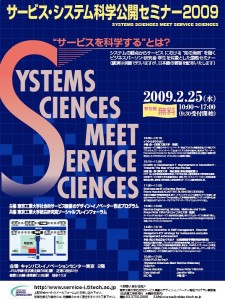A lecture for the Master’s Program in Industrial Management at Helsinki Metropolia University of Applied Sciences was an opportunity to talk about the research that has been brewing over the past 18+ months, from the basics. These students were unlikely to have heard much about (i) systems thinking; (ii) service systems, (iii) generative pattern language, or (iv) federated wiki.
Coming to Metropolia in 2015 was like a return home. In 2006, the institution was named Helsinki Polytechnic Stadia, and I collaborated on starting up the curriculum as part of the Rendez project. In recent years, I haven’t been so involved. As I was planning a trip to Europe this fall, I discovered that Satu Teerikangas had returned from teaching at UCL in the UK to Finland, becoming the Head of the Industrial Management Program. My itinerary coincided well with the course dates, so I pulled together a presentation from the evolving ideas over the last year. The audience would be a combination of students from the Industrial Management program and the Logistics program.
The session was conducted in two parts, each slightly under 60 minutes. The first part covered:
- 1. What could Service Systems Thinking be?
- 2. Systems Thinking
- 3. SSMED (Service Science, Management, Engineering and Design)
| Part 1 Audio | [20151002_1300_Metropolia_Ing_ServiceSystemsThinking.mp3] (55MB, 57m02s) |
||
| Part 1 Video (58m06s) | nHD |
HD
|
|
| H.264 MP4 | [640×360 724Kbps m4v] (316MB) |
[1280×720 1938Kbps m4v] (845MB) [on archive.org] |
[1280×720 5445Kbps mp4] (2.4GB) |
| WebM | [1280×720 1006Kbps webm] (439MB) |
||
In the second part after the break, the agenda covered:
- 4.
A lecture for the Master’s Program in Industrial Management at Helsinki Metropolia University of Applied Sciences was an opportunity to talk about the research that has been brewing over the past 18+ months, from the basics. These students were unlikely to have heard much about (i) systems thinking; (ii) service systems, (iii) generative pattern language, or (iv) federated wiki.
Coming to Metropolia in 2015 was like a return home. In 2006, the institution was named Helsinki Polytechnic Stadia, and I collaborated on starting up the curriculum as part of the Rendez project. In recent years, I haven’t been so involved. As I was planning a trip to Europe this fall, I discovered that Satu Teerikangas had returned from teaching at UCL in the UK to Finland, becoming the Head of the Industrial Management Program. My itinerary coincided well with the course dates, so I pulled together a presentation from the evolving ideas over the last year. The audience would be a combination of students from the Industrial Management program and the Logistics program.
The session was conducted in two parts, each slightly under 60 minutes. The first part covered:
- 1. What could Service Systems Thinking be?
- 2. Systems Thinking
- 3. SSMED (Service Science, Management, Engineering and Design)
| Part 1 Audio | [20151002_1300_Metropolia_Ing_ServiceSystemsThinking.mp3] (55MB, 57m02s) |
||
| Part 1 Video (58m06s) | nHD |
HD
|
|
| H.264 MP4 | [640×360 724Kbps m4v] (316MB) |
[1280×720 1938Kbps m4v] (845MB) [on archive.org] |
[1280×720 5445Kbps mp4] (2.4GB) |
| WebM | [1280×720 1006Kbps webm] (439MB) |
||
In the second part after the break, the agenda covered:
- 4.



